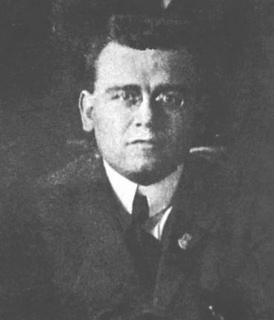A Quote by Amadeo Bordiga
There cannot exist in the future an economy which is still mercantile but which isn't capitalist anymore. Before capitalism there were economies which were partially mercantile, but capitalism is the last of this genre.
Related Quotes
Imperialism is capitalism at that stage of development at which the dominance of monopolies and finance capitalism is established; in which the export of capital has acquired pronounced importance; in which the division of the world among the international trusts has begun, in which the division of all territories of the globe among the biggest capitalist powers has been completed.
One of the problems with traditional anti-capitalist thought is that it defines capitalism as a totality, which encourages us to imagine another totality, socialism, which we can try to replace it with. This totalizing perspective has colonized the imagination of anti-capitalism and left us waiting for a revolution we can never have.
Maybe it's the Calvinist guilt about capitalism or mercantilism. But, I like the idea of doing things that only exist for as long as they exist, which are not archives, which are not sold or prepared even. It's funny though, because a lot of my unreliable tours were inspired by the docents at the Japan Society, who are mostly these volunteers from the Upper East Side. They basically find positive messages in really nihilist, perverse videos. So they were my inspiration.
We've now become conscious of the uncalculated social, economic, and environmental costs of that kind of "unconscious" capitalism. And many are beginning to practice a form of "conscious capitalism," which involves integrity and higher standards, and in which companies are responsible not just to shareholders, but also to employees, consumers, suppliers, and communities. Some call it "stakeholder capitalism."
There is a contradiction between market liberalism and political liberalism. The market liberals (e.g., social conservatives) of today want family values, less government, and maintain the traditions of society (at least in America's case). However, we must face the cultural contradiction of capitalism: the progress of capitalism, which necessitates a consumer culture, undermines the values which render capitalism possible
...the transition from capitalism to Socialism and the liberation of the working class from the yoke of capitalism cannot be effected by slow changes, by reforms, but only by a qualitative change of the capitalist system, by revolution. Hence, in order not to err in policy, one must be a revolutionary, not a reformist.
When I think about capitalism, I think about all the small businesses that were started because we have the opportunity and the freedom in America for people to do that and to make a good living for themselves and their families. And I don't think we should confuse what we have to do every so often in America, which is save capitalism from itself.
I often think that the reason capitalism hasn't completely destroyed everything is that a huge amount of anti-capitalist endeavor goes on, from labors of love, nurture, friendship, and barter to gift economies and different kinds of exchanges, not just one alternate model but a whole host of other ways in which we engage with each other and with the world that aren't financial and debt-based.

































